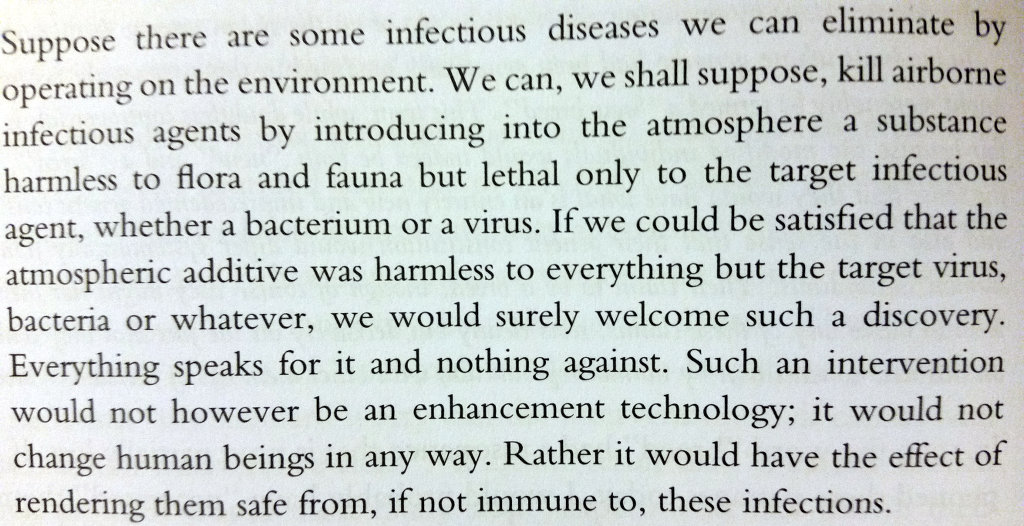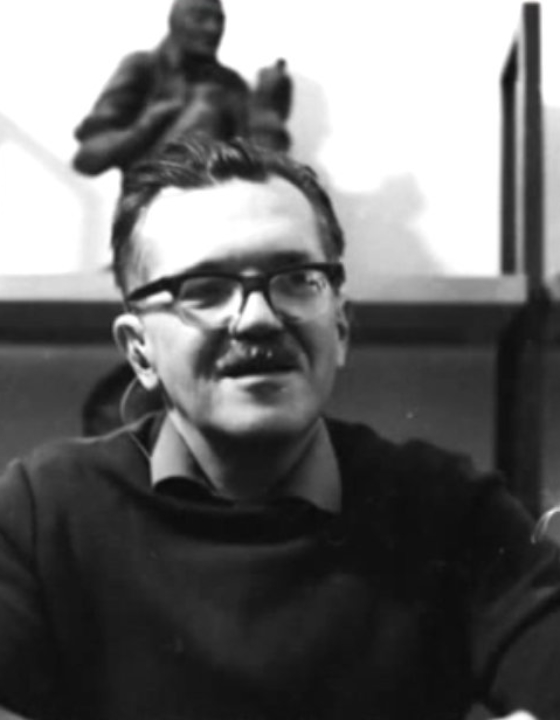You know those “if it was safe and could make this better… we must do it” arguments regarding GMO for better crops, or geoengineering for better climate and permanent changes in our bodies through bio-tech? It seems every day and age has some of that attitude, where science (or further back in history: religion) is almost on the verge to solve something ultimately and forever for us.
Here’s an example, I will not give out the name or the title of the book. It’s not directed at anyone or represents the authors views necessarily. The passage sums up the transhumanism (theological) scientist attitude.

The first problem that comes along is that for every problem solved a new problem arises. It is inherent in the nature of progress. We see it in the food industry and pesticides, where it did some miracles in the beginning of it’s use but now the side effects have drained the earth from minerals giving us less nutrient foods. Also the more studies that are being made comparing organic and conventional farming, the former comes out as better.
Believing in something opposite from what is perceived to be religious doesn’t make it less religious in it’s belief.
Or in treating diseases? Why are there any sick people in the modern, civilized and high-tech western world? How we live today and all what we have at our disposal would in the minds of people hundreds of years ago been pure fantasy that would solve all problems. But here we are and people are obese, stressed out, mentally unhappy and the list goes on. Meaning that (probably) if some transhumanism solution was to be applied it would most likely cause a new problems, or more specifically a continuation of problems. Be that a physical, mental or in the question of lifestyle.
The philosopher and ethicist Patrick D. Hopkins wrote an article for MetaNexus called Toward a Transhumanist Theology where he really nails it good about the religious scientism regarding transhumanism. Here are some bits from the article.
The movement can be seen as metaphysically irreligious—allied with materialism, atheism, and naturalism. It can also be seen as morally irreligious; the goal of the movement often seems to be the magnification of human power, motivated by pride, arrogance, and a desire for control over nature and ourselves. With its aims of transcendence and immortality, transhumanism does not seem just another form of secular humanism. It preaches the virtue of the ends of religion but focuses on human ingenuity and technology as the means toward those ends. This makes transhumanism an odd mixture in the eyes of religious believers—a chimera of irreligion, false religion, and quasi-religion.
Patrick points out the thing that many hard-core transhumanists don’t like to be likened with. Even t
…soteriology – a doctrine of the need for salvation.
Salvation from the human condition comes in the form of escaping our biological limitations, but since being human is so strongly connected with our specific species and individual biologies, salvation will require transforming or even abandoning those limitations to such an extent that we move past the category of the human.
This is something that all movements share, some sort of salvation. I discussed this in my post The inevitability of singularity. No matter if it comes from a ultra spiritual or ultra materialistic end, the goal is always the ultimate liberation.








What do you think?